24 start with O start with O
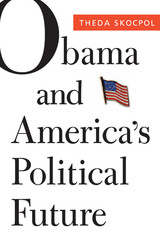
Barack Obama’s galvanizing victory in 2008, coming amid the greatest economic crisis since the 1930s, opened the door to major reforms. But the president quickly faced skepticism from supporters and fierce opposition from Republicans, who scored sweeping wins in the 2010 midterm election. Here, noted political scientist Theda Skocpol surveys the political landscape and explores its most consequential questions: What happened to Obama’s “new New Deal”? Why have his achievements enraged opponents more than they have satisfied supporters? How has the Tea Party’s ascendance reshaped American politics?
Skocpol’s compelling account rises above conventional wisdom and overwrought rhetoric. The Obama administration’s response to the recession produced bold initiatives—health care reform, changes in college loans, financial regulation—that promise security and opportunity. But these reforms are complex and will take years to implement. Potential beneficiaries do not readily understand them, yet the reforms alarm powerful interests and political enemies, creating the volatile mix of confusion and fear from which Tea Party forces erupted. Skocpol dissects the popular and elite components of the Tea Party reaction that has boosted the Republican Party while pushing it far to the right at a critical juncture for U.S. politics and governance.
Skocpol’s analysis is accompanied by contributions from two fellow scholars and a former congressman. At this moment of economic uncertainty and extreme polarization, as voters prepare to render another verdict on Obama’s historic presidency, Skocpol and her respondents help us to understand its triumphs and setbacks and see where we might be headed next.
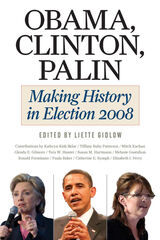
Election 2008 made American history, but it was also the product of American history. Barack Obama, Hillary Clinton, and Sarah Palin smashed through some of the most enduring barriers to high political office, but their exceptional candidacies did not come out of nowhere. In these timely and accessible essays, a distinguished group of historians explores how the candidates both challenged and reinforced historic stereotypes of race and sex while echoing familiar themes in American politics and exploiting new digital technologies.
Contributors include Kathryn Kish Sklar on Clinton’s gender masquerade; Tiffany Ruby Patterson on the politics of black anger; Mitch Kachun on Michelle Obama and stereotypes about black women’s bodies; Glenda E. Gilmore on black women’s century of effort to expand political opportunities for African Americans; Tera W. Hunter on the lost legacy of Shirley Chisholm; Susan M. Hartmann on why the U.S. has not yet followed western democracies in electing a female head of state; Melanie Gustafson on Palin and the political traditions of the American West; Ronald Formisano on the populist resurgence in 2008; Paula Baker on how digital technologies threaten the secret ballot; Catherine E. Rymph on Palin’s distinctive brand of political feminism; and Elisabeth I. Perry on the new look of American leadership.

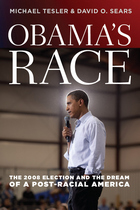
Barack Obama’s presidential victory naturally led people to believe that the United States might finally be moving into a post-racial era. Obama’s Race—and its eye-opening account of the role played by race in the election—paints a dramatically different picture.
The authors argue that the 2008 election was more polarized by racial attitudes than any other presidential election on record—and perhaps more significantly, that there were two sides to this racialization: resentful opposition to and racially liberal support for Obama. As Obama’s campaign was given a boost in the primaries from racial liberals that extended well beyond that usually offered to ideologically similar white candidates, Hillary Clinton lost much of her longstanding support and instead became the preferred candidate of Democratic racial conservatives. Time and again, voters’ racial predispositions trumped their ideological preferences as John McCain—seldom described as conservative in matters of race—became the darling of racial conservatives from both parties. Hard-hitting and sure to be controversial, Obama’s Race will be both praised and criticized—but certainly not ignored.

This volume examines the array of challenges facing the Obama administration and the president himself. Topics range from how best to manage a ruptured economy to controlling the budget, the green agenda, foreign policy, and the recalibration of U.S. relations with Britain. It also includes sections on presidential leadership, elections, healthcare, and food poverty.
The common theme throughout is the issue of governing in a fractured, unruly political environment, and the accompanying difficulties. Contributing scholars, based at academic institutions in the United States and the UK, offer a range of informed perspectives throughout this engaging work. Packed with detail yet highly accessible, this volume will appeal to those interested in American politics, history, and the political process.
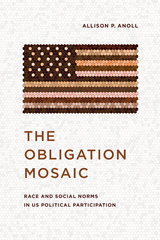
In The Obligation Mosaic, Allison P. Anoll shows that the obligations that bring people into the political world—or encourage them to stay away—vary systematically by race in the United States, with broad consequences for representation. Drawing on a rich mix of interviews, surveys, and experiments with Asian, Black, Latino, and White Americans, the book uncovers two common norms that centrally define concepts of obligation: honoring ancestors and helping those in need. Whether these norms lead different groups to politics depends on distinct racial histories and continued patterns of segregation.
Anoll’s findings not only help to explain patterns of participation but also provide a window into opportunities for change, suggesting how activists and parties might better mobilize marginalized citizens.
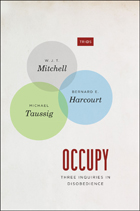

For a decade straddling the turn of the twentieth century, Mark Hanna was one of the most famous men in America. Portrayed as the puppet master controlling the weak-willed William McKinley, Hanna was loved by most Republicans and reviled by Democrats, in large part because of the way he was portrayed by the media of the day. Newspapers and other media outlets that supported McKinley reported positively about Hanna, but those sympathetic to William Jennings Bryan, the Democrats’ presidential nominee in 1896 and 1900, attacked Hanna far more aggressively than they attacked McKinley himself. Their portrayal of Hanna was wrong, but powerful, and this negative image of him survives to this day.
In this study of Mark Hanna’s career in presidential politics, William T. Horner demonstrates the flaws inherent in the ways the news media cover politics. He deconstructs the myths that surround Hanna and demonstrates the dangerous and long-lasting effect that inaccurate reporting can have on our understanding of politics. When Karl Rove emerged as the political adviser to George W. Bush’s presidential campaigns, the reporters quickly began to compare Rove to Hanna even a century after Hanna’s death. The two men played vastly different roles for the presidents they served, but modern reporters consistently described Rove as the second coming of Mark Hanna, another political Svengali.
Ohio’s Kingmaker is the story of a fascinating character in American politics and serves to remind us of the power of (mis)perceptions.
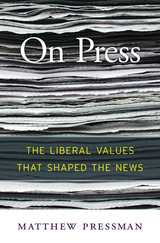
“The ultimate story behind all the stories… In an age when the press is alternately villain or hero, Pressman serves as a kind of medicine man of journalism, telling us how we got from there to here.”—Graydon Carter, former editor of Vanity Fair
In the 1960s and 1970s, the American press embraced a new way of reporting and selling the news. The causes were many: the proliferation of television, pressure to rectify the news media’s dismal treatment of minorities and women, accusations of bias from left and right, and the migration of affluent subscribers to suburbs. As Matthew Pressman’s timely history reveals, during these tumultuous decades the core values that held the profession together broke apart, and the distinctive characteristics of contemporary American journalism emerged.
Simply reporting the facts was no longer enough. In a country facing assassinations, a failing war in Vietnam, and presidential impeachment, reporters recognized a pressing need to interpret and analyze events for their readers. Objectivity and impartiality, the cornerstones of journalistic principle, were not jettisoned, but they were reimagined. Journalists’ adoption of an adversarial relationship with government and big business, along with sympathy for the dispossessed, gave their reporting a distinctly liberal drift. Yet at the same time, “soft news”—lifestyle, arts, entertainment—moved to the forefront of editors’ concerns, as profits took precedence over politics.
Today, the American press stands once again at a precipice. Accusations of political bias are more rampant than ever, and there are increasing calls from activists, customers, advertisers, and reporters themselves to rethink the values that drive the industry. As On Press suggests, today’s controversies—the latest iteration of debates that began a half-century ago—will likely take the press in unforeseen directions and challenge its survival.
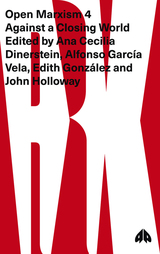
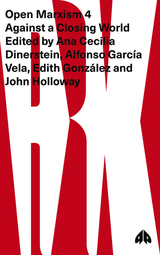
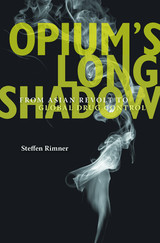
The League of Nations Advisory Committee on the Traffic in Opium and Other Dangerous Drugs, created in 1920, culminated almost eight decades of political turmoil over opium trafficking, which was by far the largest state-backed drug trade in the age of empire. Opponents of opium had long struggled to rein in the profitable drug. Opium’s Long Shadow shows how diverse local protests crossed imperial, national, and colonial boundaries to gain traction globally and harness public opinion as a moral deterrent in international politics after World War I.
Steffen Rimner traces the far-flung itineraries and trenchant arguments of reformers—significantly, feminists and journalists—who viewed opium addiction as a root cause of poverty, famine, “white slavery,” and moral degradation. These activists targeted the international reputation of drug-trading governments, first and foremost Great Britain, British India, and Japan, becoming pioneers of the global political tactic we today call naming and shaming. But rather than taking sole responsibility for their own behavior, states in turn appropriated anti-drug criticism to shame fellow sovereigns around the globe. Consequently, participation in drug control became a prerequisite for membership in the twentieth-century international community. Rimner relates how an aggressive embrace of anti-drug politics earned China and other Asian states new influence on the world stage.
The link between drug control and international legitimacy has endured. Amid fierce contemporary debate over the wisdom of narcotics policies, the 100-year-old moral consensus Rimner describes remains a backbone of the international order.

The abortion fight has long been a crucible of political tactics, with both sides employing strategies ranging from litigation to civil disobedience to outright violence. Anti-abortion activists have arguably been more tactically innovative than their pro-choice peers. Opposition and Intimidation looks at how their use of political harassment fits—or doesn't—with more conventional political efforts in the struggle over abortion.
Alesha Doan's insightful interviews and observations powerfully portray anti-abortion activists' relationship to the objects of their protest. Her portrait is augmented by thorough quantitative analysis of harassment's role within the movement's multitiered strategy—a strategy that Doan shows has forced a decline in the availability and popularity of abortions. Using her unique study of the anti-abortion movement as a model, Doan extends her findings to propose a novel and valuable theory of the new politics of harassment.
"An interesting and sophisticated account. Seamlessly weaves narrative and analysis, tying local action to national strategy. Explores uncharted territory in the abortion controversy and expands our understanding of political action."
—Deborah R. McFarlane, University of New Mexico
"For 40 years, abortion politics have been endlessly fascinating to American scholars and journalists alike because they generate unique political phenomena that challenge traditional theories of political behavior. In this book, Doan goes straight to the heart of the matter by describing, evaluating, and explaining one of the most characteristic and complex of these phenomena—political harassment. In a well-written narrative that weaves qualitative and quantitative data, she gives us the first scholarly look at this political tactic, whose relevance and use go well beyond American abortion politics."
—Chris Mooney, University of Illinois at Springfield
"The book contributes to political theory and knowledge by adding new empirical data gathered from interviews with those in the front lines of the struggle over abortion. The author refines and develops a category of unconventional political participation—political harassment of nongovernmental actors—and explains why it is particularly effective in undermining the rights of women seeking abortions, as well as the rights of abortion service providers."
—Nikki R. Van Hightower, Texas A&M University
Alesha E. Doan is Assistant Professor of Political Science at the University of Kansas.
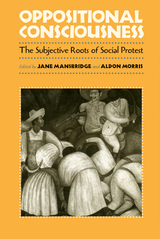
Each essay employs a recent historical case to demonstrate how oppositional consciousness actually worked in the experience of a subordinate group. Based on participant observation and interviews, chapters focus on the successful social movements of groups such as African Americans, people with disabilities, sexually harassed women, Chicano workers, and AIDS activists. Ultimately, Oppositional Consciousness sheds new light on the intricate mechanisms that drive the important social movements of our time.
Contributors: Naomi Braine, Sharon Groch, Fredrick C. Harris, Jane Mansbridge, Anna-Maria Marshall, Aldon Morris, Marc Simon Rodriguez, Brett C. Stockdill, Lori G. Waite
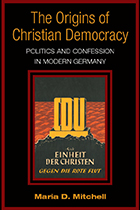
This book is a pioneering contribution to the history of the founding of the West German political system after the Second World War. The political cooperation between Catholics and Protestants that resulted in the formation of the Christian Democratic Union (CDU) in occupied and early West Germany represented a significant change from a long history of hostility in confessional relations. Given that the CDU went on to dominate politics in West Germany well into the 1960s, Maria D. Mitchell argues that an understanding of what made this interconfessional party possible is crucial to an exploration of German history in the postwar period. She examines the political history of party formation as well as the religious beliefs and motivations that shaped the party's philosophy and positions. She provides an authoritative guide to the complex processes of maneuvering and negotiation that produced the CDU during 1945-46. The full range of political possibilities is discussed, including the suppressed alternatives to the Adenauer/Erhard axis that eventually defined the party's trajectory during the 1950s and the abortive Christian Socialism associated with Jacob Kaiser.

Donald F. Stevens’ revisionist account challenges traditional historiography to examine the nature and origins of Mexico’s political instability. Turning to quantitative methods as a way of providing a framework for examining existing hypotheses concerning Mexico’s instability, the author dissects the relationship between instability and economic cycles; contradicts the notion that Mexico’s social elite could have increased political stability by becoming more active; and argues that the principal political fissures were not liberal vs. conservative but were among radical, moderate, and conservative.
Ultimately, Stevens maintains, the origins of that country’s instability are to be found in the contradictions between liberalism and Mexico’s traditional class structure, and the problems of creating an independent republic from colonial, monarchical, and authoritarian traditions.
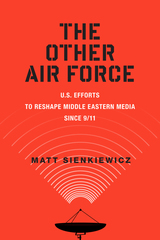
As it seeks to win the hearts and minds of citizens in the Muslim world, the United States has poured millions of dollars into local television and radio programming, hoping to generate pro-American currents on Middle Eastern airwaves. However, as this fascinating new book shows, the Middle Eastern media producers who rely on these funds are hardly puppets on an American string, but instead contribute their own political and creative agendas while working within U.S. restrictions.
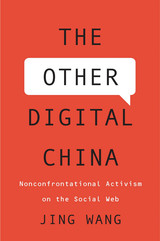
A scholar and activist tells the story of change makers operating within the Chinese Communist system, whose ideas of social action necessarily differ from those dominant in Western, liberal societies.
The Chinese government has increased digital censorship under Xi Jinping. Why? Because online activism works; it is perceived as a threat in halls of power. In The Other Digital China, Jing Wang, a scholar at MIT and an activist in China, shatters the view that citizens of nonliberal societies are either brainwashed or complicit, either imprisoned for speaking out or paralyzed by fear. Instead, Wang shows the impact of a less confrontational kind of activism. Whereas Westerners tend to equate action with open criticism and street revolutions, Chinese activists are building an invisible and quiet coalition to bring incremental progress to their society.
Many Chinese change makers practice nonconfrontational activism. They prefer to walk around obstacles rather than break through them, tactfully navigating between what is lawful and what is illegitimate. The Other Digital China describes this massive gray zone where NGOs, digital entrepreneurs, university students, IT companies like Tencent and Sina, and tech communities operate. They study the policy winds in Beijing, devising ways to press their case without antagonizing a regime where taboo terms fluctuate at different moments. What emerges is an ever-expanding networked activism on a grand scale. Under extreme ideological constraints, the majority of Chinese activists opt for neither revolution nor inertia. They share a mentality common in China: rules are meant to be bent, if not resisted.

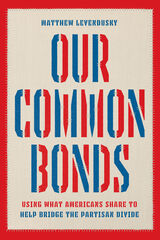
One of the defining features of twenty-first-century American politics is the rise of affective polarization: Americans increasingly not only disagree with those from the other party but distrust and dislike them as well. This has toxic downstream consequences for both politics and social relationships. Is there any solution?
Our Common Bonds shows that—although there is no silver bullet that will eradicate partisan animosity—there are concrete interventions that can reduce it. Matthew Levendusky argues that partisan animosity stems in part from partisans’ misperceptions of one another. Democrats and Republicans think they have nothing in common, but this is not true. Drawing on survey and experimental evidence, the book shows that it is possible to help partisans reframe the lens through which they evaluate the out-party by priming commonalities—specifically, shared identities outside of politics, cross-party friendships, and common issue positions and values identified through civil cross-party dialogue. Doing so lessons partisan animosity, and it can even reduce ideological polarization. The book discusses what these findings mean for real-world efforts to bridge the partisan divide.
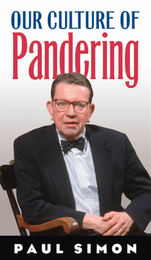
As we broaden our views, embrace our differences, foster advancements in science and technology, and collaboratively strengthen the political, social, and educational underpinnings from which we build informed and productive lives, we have much to be proud of as a nation and as a people.
But we are tempted—particularly during times of political unrest and unbridled patriotism—to ignore the far-reaching repercussions of a society that caters to money and power. In Our Culture of Pandering, former U.S. Senator Paul Simon interrogates the arenas of politics, media, religion, and education to decry the disturbing practices that confuse public service with profit-making ventures or popularity contests, that compromise the best interests of the broader population to appease a powerful few. Boldly and eloquently contributing to a cumulative understanding of how we can build a sturdier, more ethical foundation for the future, Simon suggests proactive, long-term solutions to the problems that threaten our country’s moral, financial, and intellectual well-being—problems that are increasingly exacerbated by our culture of pandering.
Lest we grow complacent and our nation static, Simon urges us to demand more from the political candidates who chase dollar signs and cater to polls, to raise our expectations of local and national media outlets that recycle gossip and peddle scandals while foreign policy and international news receive back-page treatment or no treatment at all. He asks us to consider the implications of churches that spend more money remodeling their buildings than helping those in need within their own communities and throughout the world, and he presses us to acknowledge the staggering, long-term consequences of schools that drop their academic standards to sustain their reputations and maintain funding.
Our Culture of Pandering is a stalwart and earnest call to action from a steadfast and trusted advocate of progressive public policy. Leavened with altruism and rich with compassion for citizens of America and beyond, present and future, this important and cautioning treatise advocates genuine leadership in the realms of politics, media, religion, and education. In his trademark lucid and synoptic style, Simon supplements up-to-date examples of pandering in our society from a breadth of sources with commentary and interpretive wisdom garnered from a lifetime of public service.
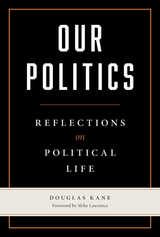
In Our Politics Kane reflects on his nearly fifty years of active engagement in state and local politics. In a series of essays, he seeks to understand the forces, motivations, incentives and technologies that shape our politics and produce the consequences that we live with every day. He describes how candidates and officeholders deal with the fundamental contradictions inherent in the democratic process, and how and why the political power structure has changed. He also explores the personal experience of being a legislator, from deciding how to vote to building relationships with party leaders, fellow legislators, the governor, and the voters in the district. Kane concludes by considering the possibility of change, how it might happen, and the steps that candidates, political parties, activists and others might take to better our politics with results more to our liking.
While many journalists record politics from the outside, and numerous political memoirs focus on personalities and what happened to whom and when, this book gives an insider’s view of politics at the level of state government. This book is not about those politicians but about our politics, which together we have created and together we must deal with.
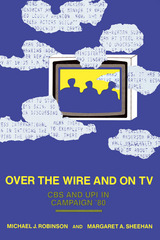
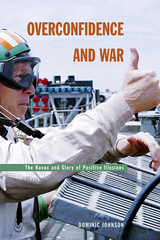
Opponents rarely go to war without thinking they can win--and clearly, one side must be wrong. This conundrum lies at the heart of the so-called "war puzzle": rational states should agree on their differences in power and thus not fight. But as Dominic Johnson argues in Overconfidence and War, states are no more rational than people, who are susceptible to exaggerated ideas of their own virtue, of their ability to control events, and of the future. By looking at this bias--called "positive illusions"--as it figures in evolutionary biology, psychology, and the politics of international conflict, this book offers compelling insights into why states wage war.
Johnson traces the effects of positive illusions on four turning points in twentieth-century history: two that erupted into war (World War I and Vietnam); and two that did not (the Munich crisis and the Cuban missile crisis). Examining the two wars, he shows how positive illusions have filtered into politics, causing leaders to overestimate themselves and underestimate their adversaries--and to resort to violence to settle a conflict against unreasonable odds. In the Munich and Cuban missile crises, he shows how lessening positive illusions may allow leaders to pursue peaceful solutions.
The human tendency toward overconfidence may have been favored by natural selection throughout our evolutionary history because of the advantages it conferred--heightening combat performance or improving one's ability to bluff an opponent. And yet, as this book suggests--and as the recent conflict in Iraq bears out--in the modern world the consequences of this evolutionary legacy are potentially deadly.
READERS
Browse our collection.
PUBLISHERS
See BiblioVault's publisher services.
STUDENT SERVICES
Files for college accessibility offices.
UChicago Accessibility Resources
home | accessibility | search | about | contact us
BiblioVault ® 2001 - 2024
The University of Chicago Press









